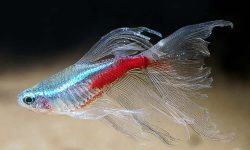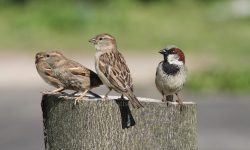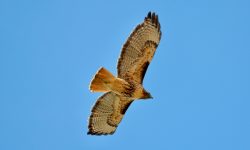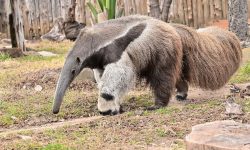Pigeons are among the most familiar birds to humans, often seen perched on city buildings, fluttering around parks, or nesting in barns. While they might seem ordinary at first glance, pigeons are truly fascinating creatures, especially when it comes to their longevity. So, how long do pigeons live? The answer varies depending on their environment, species, and overall health.
In this article, we’ll explore the pigeon lifespan in detail, including wild vs. domestic pigeons, the factors that influence their longevity, and intriguing facts that may surprise you.
Pigeon Lifespan Overview
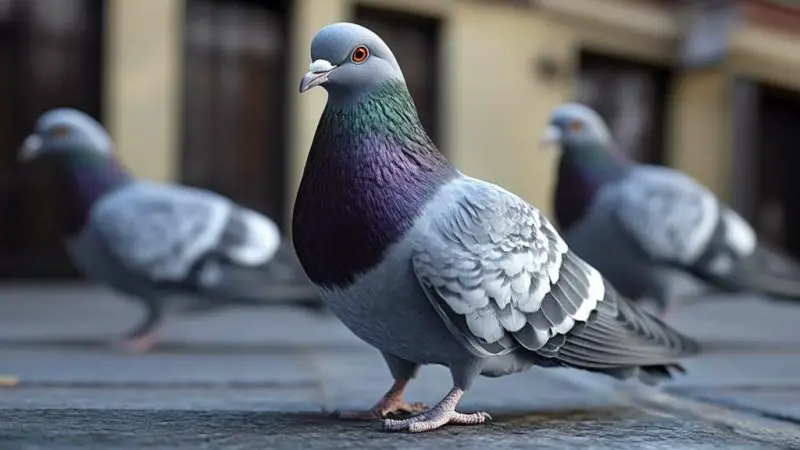
Average Lifespan of Pigeons
In general, pigeons live between 3 to 6 years in the wild. However, in captivity or under human care, some pigeons can live up to 15 years or more. The huge difference is due to various external threats that wild pigeons face daily, such as predators, diseases, environmental conditions, and food scarcity.
Domesticated pigeons, such as racing pigeons or fancy breeds, often enjoy much longer lifespans. With proper care, nutrition, and shelter, these birds can live into their teens and occasionally even into their early 20s. That’s a long life for a bird.
The Longest-Lived Pigeon on Record
The record for the oldest known pigeon belongs to a bird named Peace, who lived to be 24 years old. While rare, such lifespans are possible under optimal conditions. These outliers demonstrate that pigeons have the biological potential for longevity if external threats are minimized.
Factors That Affect Pigeon Lifespan
Environment and Living Conditions
One of the most significant factors influencing pigeon lifespan is their environment. Wild pigeons face numerous dangers, from urban traffic and polluted air to predators such as hawks and cats. In contrast, domestic pigeons that live in lofts or are kept as pets are protected from these dangers, resulting in significantly longer lives.
Extreme temperatures, especially harsh winters or scorching summers, can also reduce the lifespan of wild pigeons, especially young or malnourished ones.
Predators and Threats
In nature, pigeons are prey for many predators. Birds of prey such as falcons, hawks, and eagles often target pigeons, especially in open areas. Ground predators like raccoons, foxes, and even domestic cats can also endanger their lives, particularly when pigeons are roosting or nesting on the ground.
Urban dangers like cars, windows, and human traps are also major threats. Many pigeons fall victim to poisoning or electrocution, shortening their potential lifespan dramatically.
Diet and Nutrition
Nutrition plays a vital role in the health and longevity of pigeons. Wild pigeons often survive on scraps, seeds, and whatever food they can scavenge. In contrast, pigeons in captivity are usually provided with a well-balanced diet rich in grains, legumes, and supplements, which supports their overall health and reduces the risk of disease.
Vitamin deficiencies, poor access to clean water, and contaminated food can significantly reduce a pigeon’s lifespan, particularly in urban or rural settings where their diet is inconsistent.
Healthcare and Disease
Just like any animal, pigeons are prone to diseases. Some of the most common pigeon diseases include paramyxovirus, salmonellosis, canker, and pigeon pox. Without treatment, these conditions can become fatal. Wild pigeons rarely receive medical care, but pet or racing pigeons benefit from regular checkups and vaccinations.
Parasites like lice, mites, and worms also compromise their health. A clean, well-maintained living environment helps prevent infestations and disease outbreaks, giving domestic pigeons a better chance at long life.
Wild vs. Domestic Pigeon Lifespan
Wild Pigeons
Wild pigeons, including feral city pigeons, usually live between 2 to 5 years, although some may reach 6 or 7 years if lucky. The short lifespan is mostly due to high predation rates, frequent exposure to disease, inconsistent food supply, and exposure to traffic and urban hazards.
Urban environments may provide more abundant food sources, but they also present more anthropogenic dangers that threaten wild pigeons’ survival.
Domestic Pigeons
Domesticated pigeons, whether kept for racing, breeding, or as pets, often live 10 to 15 years, and in exceptional cases, more than 20. Their lifespan is extended thanks to regular feeding and clean water, veterinary care and vaccines, protection from predators, and controlled environments such as pigeon lofts or aviaries.
Owners who are attentive to their pigeon’s needs can help ensure their birds live healthy, fulfilling lives.
Lifespan by Pigeon Type
Rock Pigeons (Columba livia)
Rock pigeons, also known as city or feral pigeons, are the most common pigeon species worldwide. In the wild, they typically live 3 to 6 years, while those kept in captivity may live up to 15 years. Their hardiness allows them to thrive in diverse environments, from city centers to rural farms.
Racing Pigeons
Racing pigeons are selectively bred for speed and endurance. With excellent care, they often live 10 to 20 years. Their value and role in sport mean they receive superior treatment, including special diets, exercise regimens, and medical checkups.
Fancy Pigeons
Fancy pigeons are bred for unique appearances and are common in pigeon shows. These birds can live 10 to 15 years or more with proper care. However, some breeds with exaggerated features may be more prone to health problems, slightly reducing their average lifespan.
Homing Pigeons
Homing pigeons, closely related to racing pigeons, have a lifespan of 10 to 15 years in captivity. Their incredible navigation skills make them useful for messaging in past wars, and they are generally robust and intelligent birds.
Do Pigeons Make Good Long-Term Pets?
Pigeons can be fantastic pets for bird lovers who want a long-term companion. They are quiet, clean, and bond well with humans. Since they live over a decade with proper care, adopting a pigeon is a long-term commitment.
Pet pigeons should be kept in spacious cages or aviaries, provided with clean food and water daily, and allowed time outside their enclosures to exercise and interact. They enjoy companionship and can become depressed or lonely if left alone for too long.
How to Extend a Pigeon’s Life
Provide a Clean Environment
Keeping your pigeon’s cage or loft clean is essential for preventing disease and infection. Regularly change bedding, clean perches, and ensure proper ventilation.
Offer a Nutritious Diet
Feed your pigeon a mix of grains, seeds, legumes, and greens. Supplement with grit and calcium sources like crushed eggshells. Always provide access to fresh, clean water.
Protect Against Predators and Harsh Weather
Ensure that outdoor enclosures are secure from predators. Provide shelter against rain, wind, heat, and cold. In colder climates, insulation and heat sources may be necessary.
Regular Vet Checkups
Annual health checkups can catch illnesses early. Ask your vet about vaccinations, worming schedules, and treatments for common pigeon ailments.
Interesting and Surprising Pigeon Lifespan Facts
Pigeons Have Been Domesticated for Over 5,000 Years
Humans have raised pigeons for food, sport, and companionship since ancient times. This long history of domestication has contributed to the increased lifespan of many pigeon breeds.
Homing Pigeons Were War Heroes
During World War I and II, homing pigeons saved thousands of lives by delivering messages across enemy lines. Many survived the wars and lived long lives afterward.
Older Pigeons Can Still Reproduce
Unlike some birds, pigeons remain fertile well into their older years. Even at 10 years old, a healthy pigeon may still breed and raise young.
Pigeons Form Long-Term Bonds
Pigeons are monogamous and often stay with the same mate for life. This strong pair bond contributes to emotional stability, which may indirectly influence longevity.
Pigeon Lifespan FAQ
How can you tell how old a pigeon is?
It’s difficult to determine a pigeon’s exact age just by looking. Younger pigeons (squabs) have pinkish beaks and fluffy feathers, while older pigeons may have more pronounced eye rings and faded plumage. Bands on their legs can also indicate their year of birth if bred in captivity.
Do pigeons die of old age?
Yes, pigeons can die of natural causes related to old age, especially if they are kept in safe, controlled environments. As they age, they may become less active and more prone to health issues.
Can pigeons live indoors?
Yes, many people keep pigeons as indoor pets. As long as they have space to fly and explore, they can adapt well to indoor living. Just like cats or dogs, they require attention and enrichment to stay healthy and happy.
Final Thoughts
So, how long do pigeons live? The answer depends largely on whether they’re living in the wild or in captivity. While wild pigeons typically survive just a few years, domestic and pet pigeons can live 10 to 15 years or even longer with the right care. Understanding the factors that affect pigeon longevity such as diet, environment, and healthcare can help owners and bird lovers alike support these fascinating creatures throughout their lives.
Whether you’re watching a flock in a city square or raising one in your backyard loft, remember pigeons are more than just birds. They’re survivors, companions, and marvels of nature.

